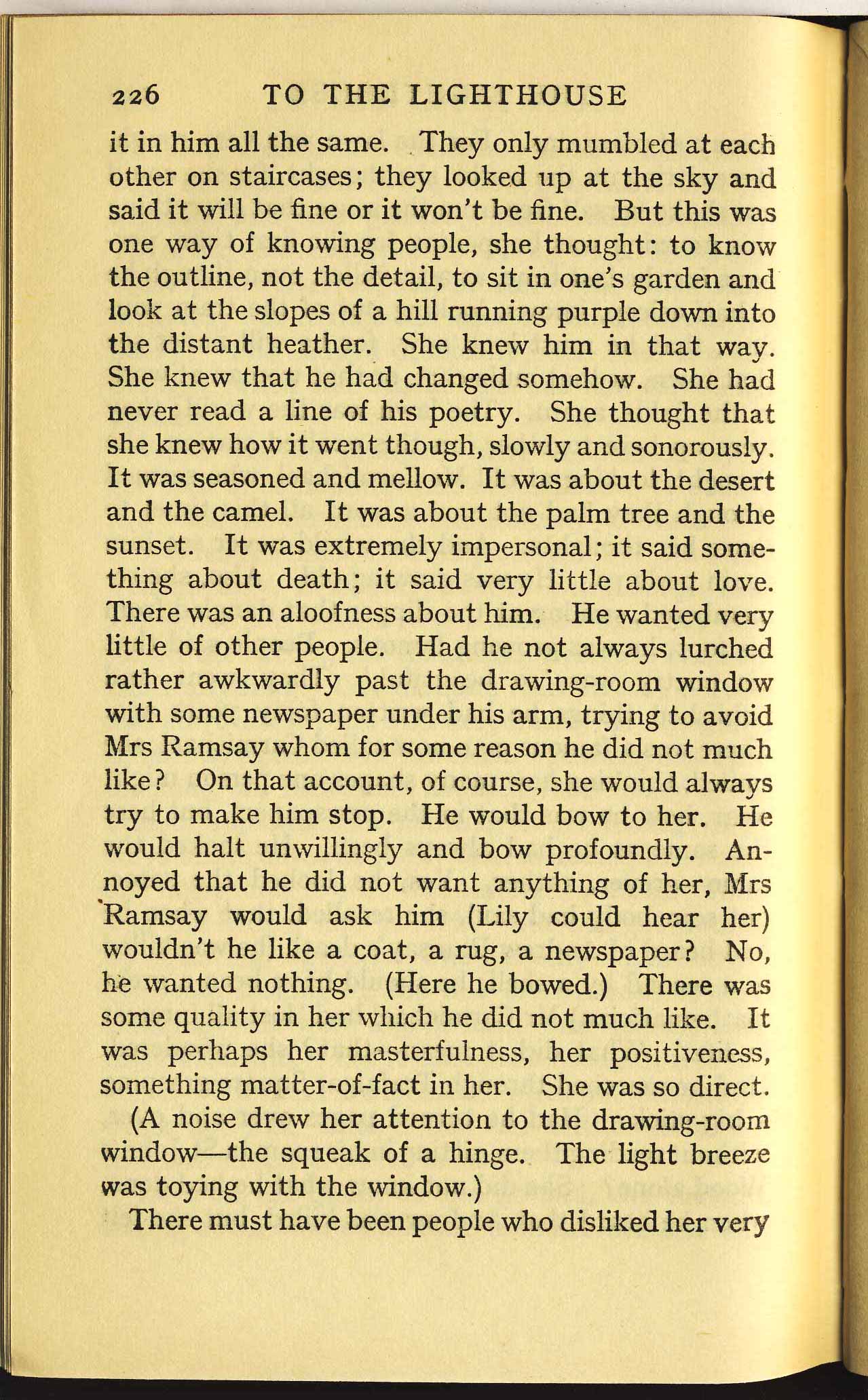
226 TO THE LIGHTHOUSEit in him all the same. They only mumbled at eachother on staircases; they looked up at the sky andsaid it will be fine or it won’t be fine. But this wasone way of knowing people, she thought: to knowthe outline, not the detail, to sit in one’s garden andlook at the slopes of a hill running purple down intothe distant heather. She knew him in that way.She knew that he had changed somehow. She hadnever read a line of his poetry. She thought thatshe knew how it went though, slowly and sonorously.It was seasoned and mellow. It was about the desertand the camel. It was about the palm tree and thesunset. It was extremely impersonal; it said some-thing about death; it said very little about love.There was an aloofness about him. He wanted verylittle of other people. Had he not always lurchedrather awkwardly past the drawing-room windowwith some newspaper under his arm, trying to avoidMrs Ramsay whom for some reason he did not muchlike? On that account, of course, she would alwaystry to make him stop. He would bow to her. Hewould halt unwillingly and bow profoundly. An-noyed that he did not want anything of her, MrsRamsay would ask him (Lily could hear her)wouldn’t he like a coat, a rug, a newspaper? No,he wanted nothing. (Here he bowed.) There wassome quality in her which he did not much like. Itwas perhaps her masterfulness, her positiveness,something matter-of-fact in her. She was so direct.
(A noise drew her attention to the drawing-roomwindow—the squeak of a hinge. The light breezewas toying with the window.)
There must have been people who disliked her very








